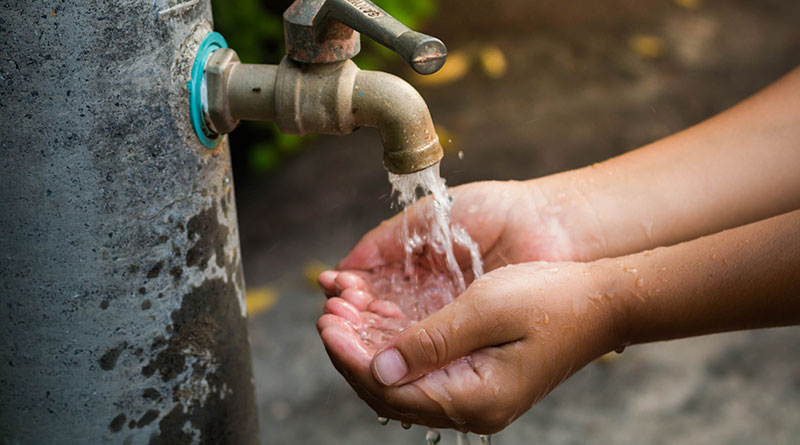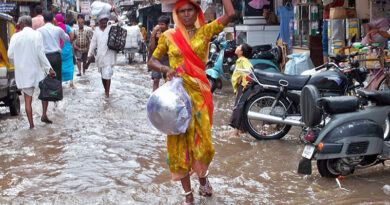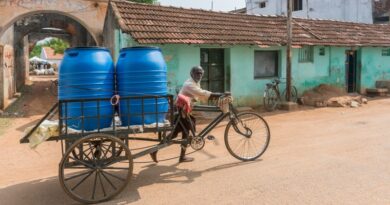New global ‘hand hygiene for all’ initiative launched; Govts, private sector urged to show full commitment

A global initiative led by World Health Organisation (WHO) and UNICEF has made a call to action for all of society to achieve universal hand hygiene and stop the spread of COVID-19. The Hand Hygiene for All Global Initiative was introduced on October 15, the Global Handwashing Day.
The initiative aims to implement WHO’s global recommendations on hand hygiene to prevent and control the COVID-19 pandemic and work to ensure lasting infrastructure and behavior.
Through this initiative, WHO, UNICEF, and other partners are urging global leaders to ensure that handwashing is both possible and promoted in homes, schools, healthcare facilities, care homes, workplaces and in public areas. They warn that without the full commitment of governments, community, and private sector to participate, the world risks a continuous cycle of COVID-19 and similar pandemics leading to more and more needless deaths due to infectious diseases.
UNICEF Executive Director Henrietta Fore, who introduced the new initiative, said “hand hygiene is everyone’s business” and that it must become a priority as a vital first line of defense, especially against the COVID-19 virus.
The initiative calls for countries to lay out comprehensive roadmaps that bridge together national COVID-19 preparedness and response plans with mid- and long-term national development plans to ensure hand hygiene is a mainstay beyond the pandemic, as part of infection prevention and control (IPC) and water, sanitation and hygiene (WASH) efforts.
It also proposes a framework for coordination and collaboration among global and regional partners, with the primary aim of supporting and growing country-led efforts and investments.
The global initiative is designed around three stages: Responding to the immediate pandemic, Rebuilding infrastructure and services, and Reimagining hand hygiene in society.
Each stage has four core dimensions: securing political leadership to embed a culture of hand hygiene, strengthening the institutional and policy environment to drive progress, ensuring the availability of hand hygiene stations, alcohol-based hand rubs and soap and water where they are needed, and drawing on evidence-based behaviour change approaches to encourage sustained hand hygiene practices.
The initiative is working with a number of partners to further progress in specific settings, such as health care facilities (including primary and long-term settings), schools and child-care centres, workplaces, transport hubs, households, institutions and places of worship.
In health care, it builds upon and supports existing programmes such as the WHO SAVE LIVES: Clean Your Hands global campaign and the WASH in health care facilities initiatives.
“Handwashing with soap has always been a lifesaving investment. It’s one of the simplest — and most cost-effective — things we can do to keep ourselves, and our families and communities, healthy and disease-free. COVID-19 has reminded us all of the importance of good hand hygiene — as a vital first line of defense against the virus”, said Fore.
The UNICEF Executive Director indicated that to bring “this vision to life means building new political will and new sources of funding and financing.”
Unilever and Colgate-Palmolive had led the way with generous contributions of soap and hygiene products and through a partnership with LIXIL, a new low-cost, low water-flow handwashing device can be distributed to more households to fulfill handwashing needs, she said.
The World Economic Forum, WHO and the World Bank are soliciting more partners, ideas and funding to address the greater need for hygiene-related investment. There is an existing pipeline of $500 million in projects under development, she added.
Both WHO and UNICEF underscore that the most vulnerable communities are still exposed and that sustainable solutions must be developed to meet long-term requirements.
“We are at a critical juncture – what the global community does or does not do to sustain handwashing now could save or kill millions of vulnerable children, slow or drive the spread of antimicrobial resistance and also determine the first line of defense for adolescents, adults and the elderly.”



